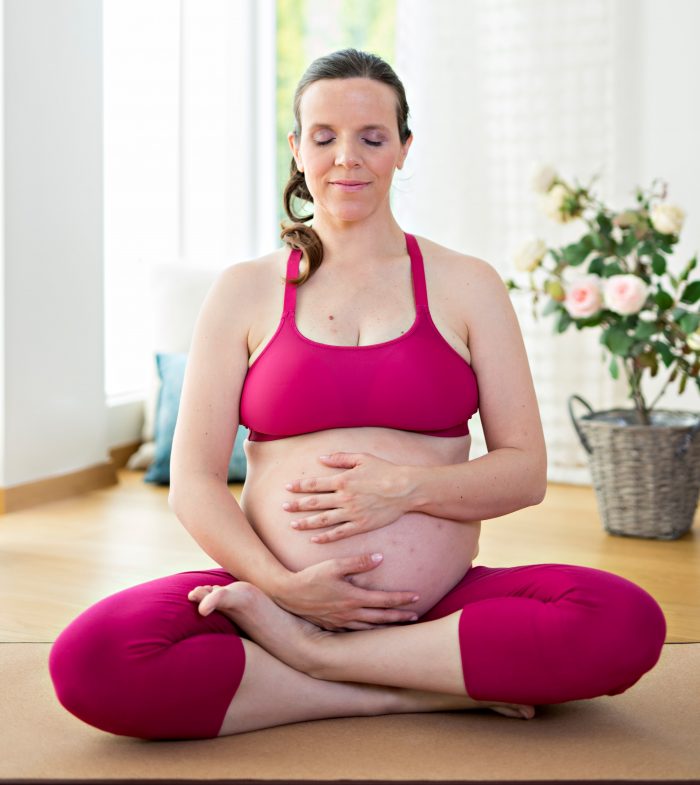Pregnant women or women undergoing fertility treatment do not appear to be more susceptible to the consequences of the coronavirus than the general population and, according to information from the Royal College of Obstetricians and Gynaecologists in England, the vast majority of pregnant women are expected to suffer only mild symptoms as a moderate cold or flu.
However, one aspect about which very little is talked about is health anxiety, and what it can do to us. All this information overload, increase concern and fear, that we all feel when there is a virus about which little is known in the world, and that can bring hard consequences, is not helping our anxiety about our health, about the health of others and, in particular, for pregnant women, their worries about their baby’s health. This state of anxiety is very real and can even be exacerbated if you already live in a state of daily stress or anxiety. All of this will undoubtedly affect the nervous system and the immune system of future moms.
Many of us already feel flooded with information about COVID-19, trying to keep up with local news, recommendations and policy changes. According to the data available today, I would like to clarify some issues and help future mothers to balance their state of uncertainty and insecurity about COVID-19, and its effects on pregnancy.
What is the effect of coronavirus on pregnant women?
There are still many unanswered questions about the immunological changes that occur as the pregnancy progresses and the interaction between infection, pregnancy, placenta and fetus. According to a study on Pregnancy and Infection published in the New England Journal of Medicine, the evidence that there is a greater susceptibility of pregnant women to infections in general is quite weak.
In relation to COVID-19, the most serious symptoms, such as pneumonia, appear to be more common in older people or with weakened immune systems, and there are no reports of deaths of pregnant women due to coronavirus. People with underlying heart or lung disease, such as asthma, are also part of the risk group if they get coronavirus. But don’t forget that this is a new virus, so we are all starting to learn more about it.
What effect can coronavirus have on my baby if I am diagnosed with COVID-19?
So far there is no evidence that the virus can pass to the baby while you are pregnant, so it is unlikely that it can cause any abnormalities in the baby.
Some babies born to women with symptoms of coronavirus in China were born prematurely, but it is unclear whether this happened because of the virus or by medical decision. There is also no evidence on how the coronavirus can affect the way you give birth. However, if your respiratory condition is affected, an urgent delivery or a cesarean section may be required, and your baby can also be tested for coronavirus at birth.
What can I do to reduce the risk of getting coronavirus?
You must follow all guidelines from the World Health Organization or your country. The most important thing is undoubtedly to wash your hands regularly and effectively, as well as to apply social distance. If you think you may be infected you should contact the national assistance number, your obstetrician or midwife.
Will I be able to be skin to skin with my baby and breastfeed if coronavirus is suspected or confirmed?
There are some reports from China that suggest that women with coronavirus have been advised to be separate from their baby for 14 days. However, this can have negative effects on the connection between mother and baby and on the baby’s feeding, so the risks/benefits must be considered by you, your doctor and pediatrician, each case being a particular case.
So far there is no evidence that the virus can be transmitted through breast milk, and the benefits of breast milk are well known, so you must follow the instructions to overcome any risk of transmitting the coronavirus to your baby, which has nothing to do with your milk.
How can I stay informed about COVID-19 without the anxiety that affects my pregnancy?
More is not necessarily better. Better quality yes. Talk to your doctor, get information tailored to your specific situation and make decisions accordingly. Trust only reliable and credible sources of information and close all other information channels, including people who may be increasing your anxiety.
I’m not that worried but I can’t stop reading about it, it’s everywhere.
That is what we must avoid, when we are not the authors of our decisions and we only react to the world around us, our body starts to work in survival mode. This is not good for our health, it builds up tension in the body, increases our stress and anxiety, changing the parts of our brain that deal with our mood bringing an increase sense of worry, irritability or frustration.
When we are not in a reactive state, we choose what we read, what we see, when we see it, and what we think about it, we are led to choose what is most comfortable and safe for our body, for our emotions, and for our baby. Pregnancy or undergoing fertility treatment is a state of greatest sensitivity and you should keep this in mind.
I will be at home for 2 weeks what should I do?
Don’t forget that you are a unique and special mother and you deserve to take good care of yourself, so be kind to yourself, your body and your baby. Tell yourself how special you and your baby really are. Give yourself and your baby time to relax, to communicate and connect with each other. Read a book, feel inspired by nature or just drink a nice cup of tea. Most important of all is not to react but to conduct your body and your emotions. Think if it seems convenient to receive more information at this point? Or do you need a few minutes or hours to feel safe in your body and calm in your emotions again?
We live in a technological world and there are many options online that can help you start a yoga practice adapted to pregnancy, through gentle stretching, breathing, relaxation and meditation techniques that will help you feel more calm, relaxed and boost your immune system. It is scientifically proven that yoga helps to keep cells healthy and this is because yoga helps to reduce physical stress, also reducing inflammation in general. Less inflammation means your body is working and defending itself the way it should be.
Don’t forget that we are anxious about our health not because we have access to more information, but because we feel insecure in our bodies and in our environment. Restore the safety of your body, listen to your inner voice and maternal intuition, and it will be much easier to make decisions to keep yourself, your baby and your family safe.
Reference articles:
. Coronavirus (COVID-19) infection and pregnancy – Royal College of Obstetricians and Gynaecologists, Royal College of Midwives and Royal College of Pediatrics and Child Health.
. Pregnancy and Infection – Athena P. Kourtis, M.D., Ph.D., Jennifer S. Read, M.D., M.P.H., and Denise J. Jamieson, M.D., M.P.H.











Read 0 comments and reply